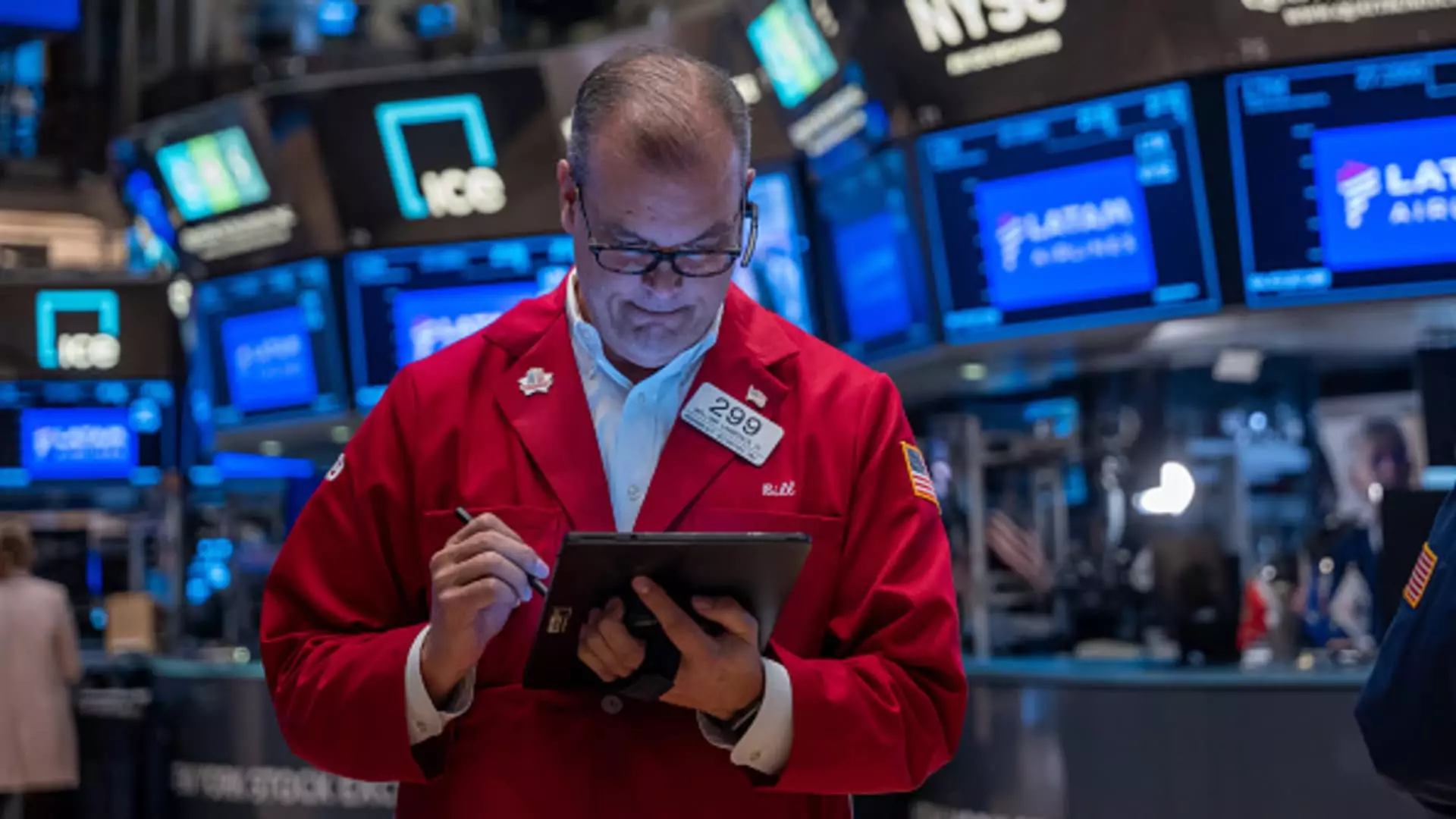The financial world is never static; it’s a dynamic arena where market events unfold rapidly, influencing individual stocks and broader economic indicators. In this article, we delve into the recent fluctuations of major indices such as the Dow Jones Industrial Average and the S&P 500, while exploring the implications of shifting yields in the Treasury market. We’ll also examine notable corporate developments, particularly in relation to food and beverage giants, and the potential future impacts on the stock market.
Market Dynamics: A Second Day of Decline
This week has seen the Dow and S&P 500 decline for the second consecutive day, reflecting a growing sense of unease among investors. The benchmark yield on the 10-year Treasury note reclaimed its position above 4.2%, a noteworthy shift that has captured considerable attention, emerging as the most searched ticker on CNBC throughout the day. This increased interest in the 10-year yield signals a heightened focus on long-term economic expectations.
The intricacies of the Treasury yield curve reveal further insights. The two-year yield sits at 4.03%, while shorter treasury bills are yielding significant rates: the six-month T-bill stands at 4.49% and the three-month at 4.63%. These yields suggest a prosperous environment for fixed-income securities, drawing investors wary of the equity market’s volatility.
As corporate earnings reports roll in, different sectors are reacting distinctly to market pressures. Starbucks, once a bastion of consistent growth, has experienced a notable downturn, with shares dropping around 4% during extended trading hours. This decline is coupled with the company suspending its fiscal 2025 guidance amidst reports of slumping same-store sales. To counteract investor anxiety, Starbucks announced an increase in its quarterly dividend from 57 cents to 61 cents per share, a strategic move meant to retain investor interest amid troubling signals.
On the flip side, McDonald’s faces a crisis of its own as the Centers for Disease Control and Prevention (CDC) announced a link between its food offerings and 49 confirmed cases of E. coli. With most cases reported in Colorado and Nebraska, but extending to eight other states, the chain has halted the use of certain food items in an effort to regain consumer trust. Shares fell almost 6% in after-hours trading following the announcement. The fast-food giant, having reached a new high only days prior, must now navigate the treacherous waters of public health concerns, reminiscent of Chipotle’s extensive recovery from similar allegations in the past.
The overall corporate landscape is nuanced, with companies like Boeing enjoying a surge of nearly 5% in the preceding week, yet facing an overall decline of 10.6% over three months. Phil LeBeau from CNBC TV recently engaged with IAM 751 President, who remarked on the precarious nature of current negotiations between Boeing and its workers, emphasizing the ongoing turbulence within the aerospace industry.
Coca-Cola stands out as a resilient entity amidst these fluctuations, anticipating a quarterly report scheduled for release early Wednesday. With a stock advance of 7% over the last three months, the beverage giant is well-positioned but must demonstrate continued growth to maintain investor confidence. The telecommunications sector, represented by AT&T, has also shown favorable momentum, rebounding 16% over three months, though slightly declining recently.
Looking toward the horizon, several sectors are set to report, promising potential market shifts. For instance, electric vehicle maker Tesla is anticipated to release its results after the bell, up against a backdrop of a 20% decrease from its earlier summer heights. Similarly, IBM’s robust 26% gain over three months cannot mask the competitive challenges it faces in the broader tech landscape.
Moreover, key industrial players like General Electric and United Rentals are expected to reveal their results soon. GE Vernova has seen an impressive increase of 65%, indicative of its transformative strategy in the energy sector, whereas United Rentals’ steady climb reflects demand in construction.
The tech space continues to exhibit resilience, with ServiceNow climbing 21% recently, affirming the sector’s robust recovery trajectory. As companies unveil their earnings, investor sentiment will be crucial in shaping the broader economic narrative.
In sum, the current financial landscape is characterized by volatility and rapid shifts in investor sentiment, driven by macroeconomic factors and corporate announcements. With yields on the rise and major corporations facing various challenges, market participants must remain vigilant, keeping an eye on the developments that will surely shape the forthcoming trading sessions. Balancing caution with opportunistic investments will be key in navigating the uncertainties that lie ahead.


Leave a Reply